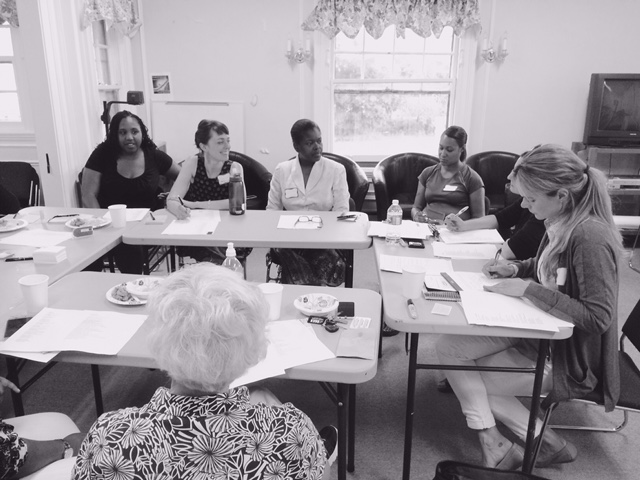
Our approach is based on a long history of programs and research in diverse populations. For more than twenty-five years, James W. Pennebaker at the University of Texas, Austin, has been studying the effects of expressive writing and reporting its positive impacts on both physical and emotional health, as well as resulting behavior.
“When people are given the opportunity to write about emotional upheavals, they often experience improved health,” Pennebaker writes. “They go to the doctor less. They have changes in immune function.”
Furthermore, instead of obsessing continually over an event, they can focus on moving forward. As a result, stress levels go down and health, proportionately, goes up. (“Writing to Heal”, James Pennebaker, UT, 2005)
The effects of expressive writing are perhaps most profound in circumstances that are most dramatic. However, it may not take much in order to transform the narrative. According to a 2008 study at Georgetown University, “even a single, brief writing exercise is related to cancer patients’ reports of improved quality of life.” (The Oncologist, 13:196-204) Similarly, but with regard to physical improvement, a 2004 study of HIV patients in Auckland, New Zealand showed repeatedly higher T cell counts in patient groups who wrote directed personal essays throughout the course of treatment. (Psychosomatic Medicine, 66:272-275) And, in the arena of academic performance, consistent results at Duke and Stanford Universities demonstrate that struggling students experienced increased empowerment, resulting in higher grades, through the writing and accompanying revision process. Their improved performance was attributed to a stronger sense of authority in decision-making and clearer reflection. (“Writing Your Way to Happiness,” New York Times, 1/21/15)
In addition to developing our creative writing skills, we study classic and contemporary works of literature, finding commonality and building sustainable connections through the practice of “bibliotherapy”, a term first used in 1916 referring to the practice of reading for therapeutic effect. (“Can Reading Make You Happier?” The New Yorker, 6/9/15). Writers Without Margins offers opportunities for critical thinking and analysis through literary interpretation, traditionally offered in a conventional college classroom, in human services environments, and in community centers. Our mission includes tailoring our approach to the individuals who gather, fostering group support, and promoting personal insight during otherwise isolating experiences.
In 2014, we began with a partnership between Emerson College and Boston’s homeless population at St. Francis House Day Shelter. According to a 2016 Brookings Institution Report, Boston ranks first for income inequality and the 2014 U.S. Conference of Mayors found: “Boston has the highest homeless population of 25 cities surveyed, beating out San Francisco, Los Angeles, and Washington D.C.” Additionally, “a quarter of Boston’s homeless population have jobs.” They also have backgrounds, educations, talents, hopes, dreams, goals, and stories.